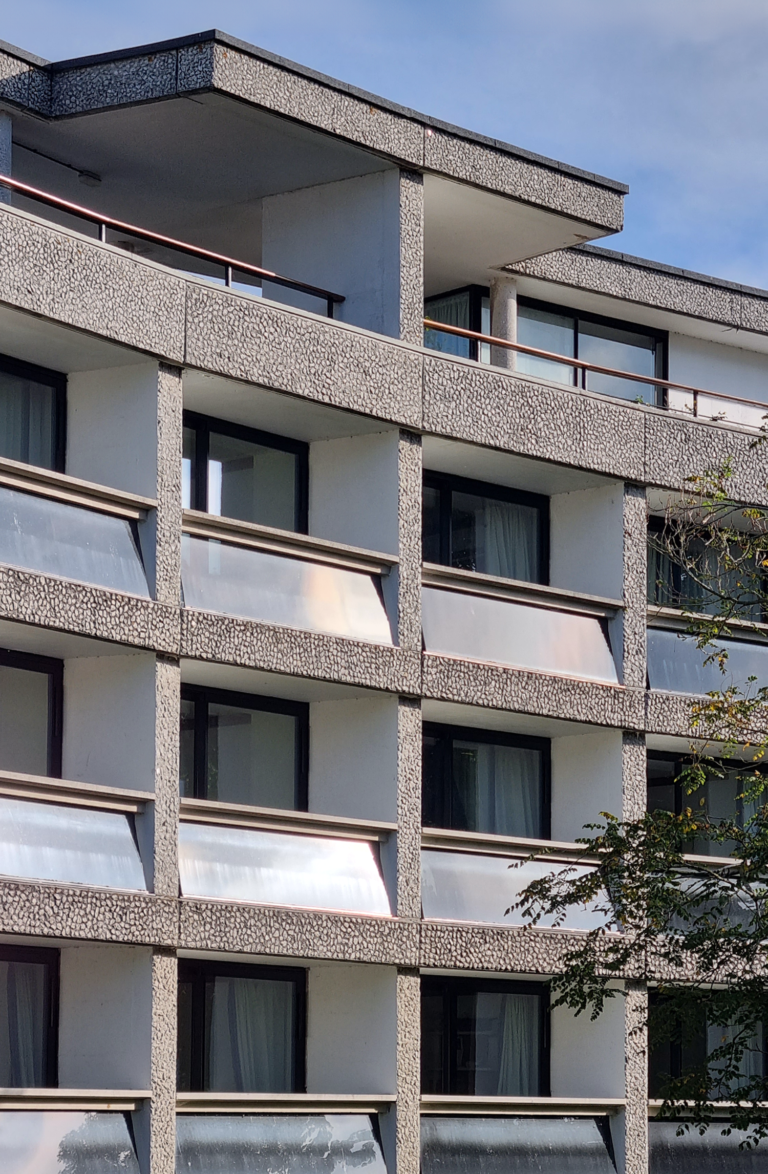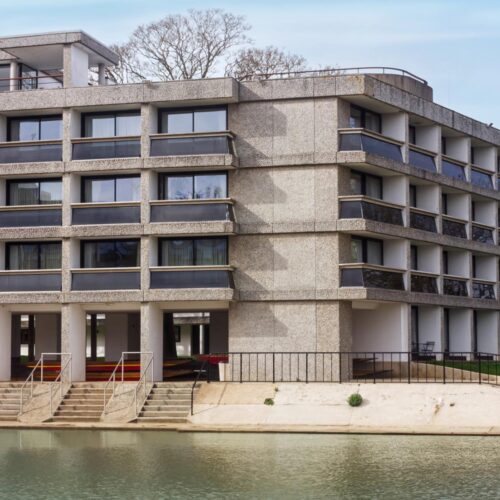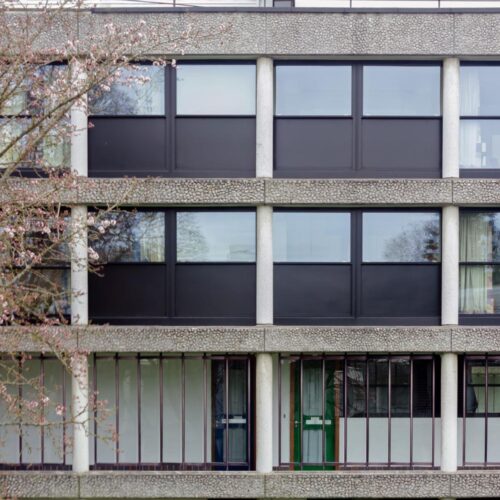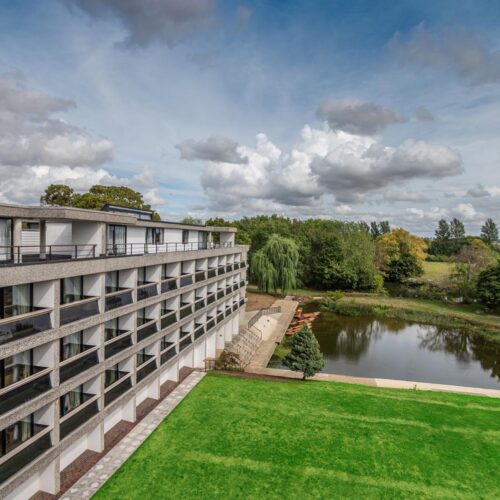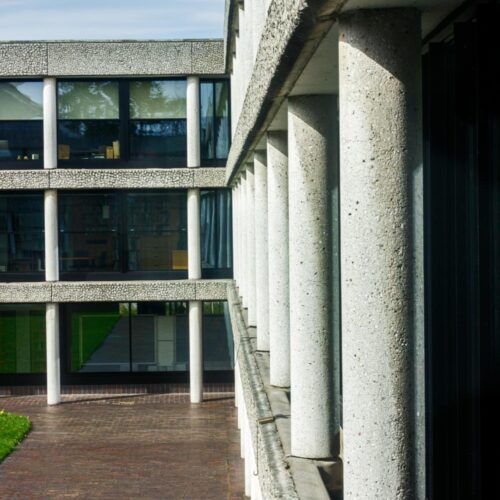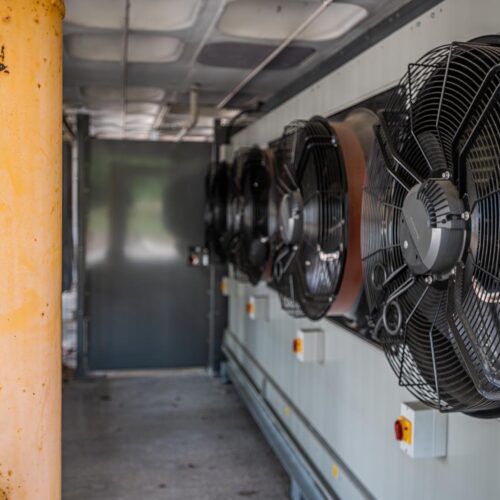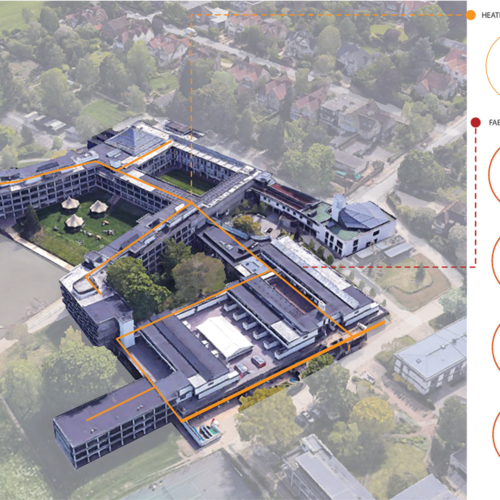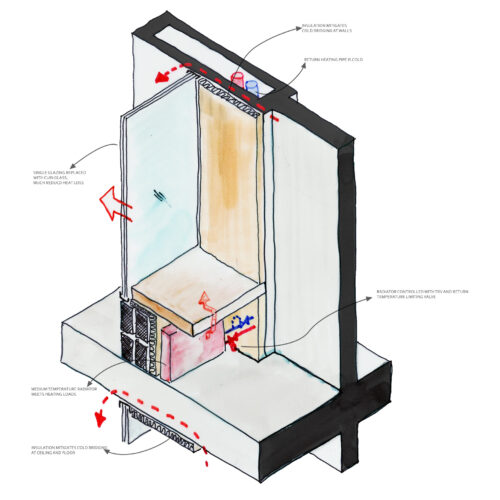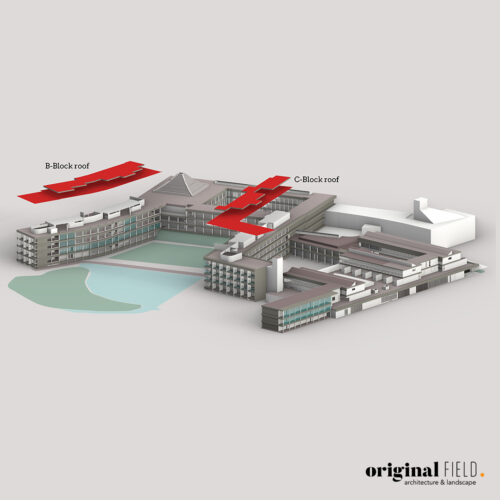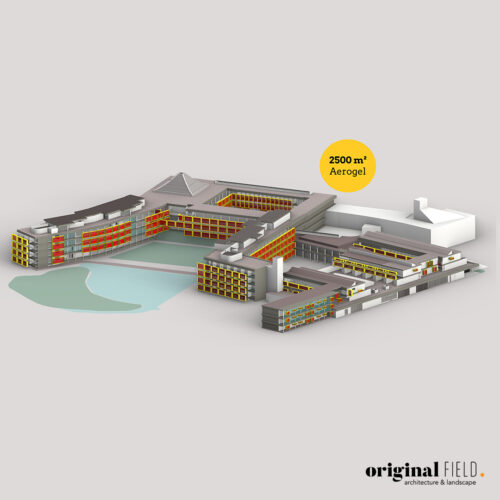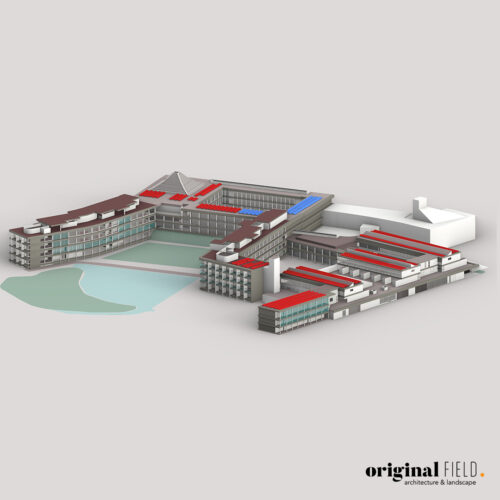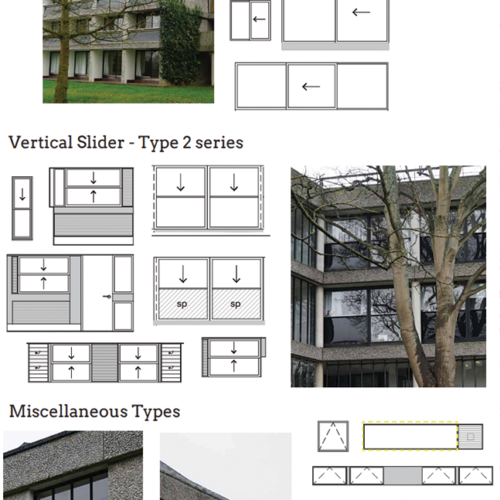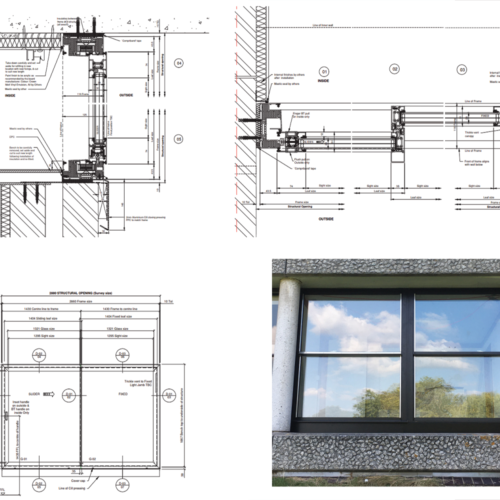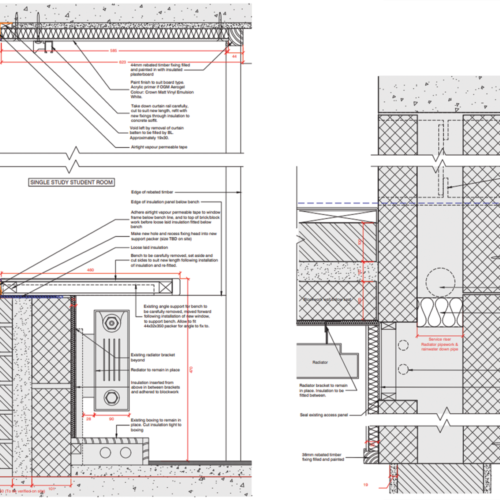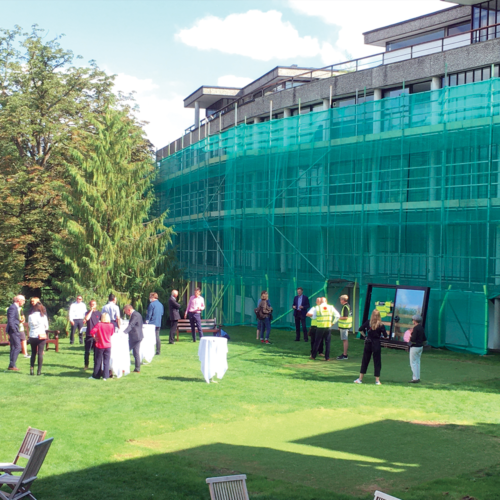Refurbishment And Upgrade
Decarbonisation of Wolfson College is one of the UK’s largest heat pump retrofits, using an eco-friendly CO₂ refrigerant, making this college the UK’s first new zero higher education institution. The project was made possible through government funding and careful planning, ensuring compliance with heritage regulations.
Phase 1, completed in June 2022, saw the installation of over 900 new windows and heat pumps. Phase 2 continued this transformation. The project stands as a pioneering model for decarbonising historic estates while preserving their architectural integrity.
In its 2020 Estate Strategy, Wolfson College prioritised decarbonisation, setting an ambitious goal of achieving a net zero estate by 2030. Given the college’s unique architecture, ageing gas heating system, and extensive single glazing, this was a complex and costly challenge.
A comprehensive Decarbonisation Plan identified the most effective measures to reduce heat loss and lower carbon emissions. Key initiatives included:
- Enhanced Insulation – A combination of insulation methods to cut annual heating demand by 80%.
- Air Source Heat Pumps – Replacing gas boilers with energy-efficient heat pumps powered by renewable electricity, reducing the estate’s carbon footprint by 75%.
- Advanced Glazing – Bespoke triple-glazed windows, designed to match the original aesthetic while significantly improving thermal performance.
Whilst heat pump technology has been around for some years, this was one of the largest heat pump programmes ever undertaken in the UK, and one of the largest to be retrofitted to an estate of this complexity. The heat pump selected avoids the use of environmentally damaging refrigerants and instead uses CO2 (ironically, the greenest of refrigerants) in its sealed system. The replacement of the windows, the majority of which are large, bespoke and form the external “wall” of most rooms, was a key challenge. The window development was subject to an intensive design and technical development process. To achieve a high thermal performance the windows incorporate advanced glazing technologies with triple-glazed ultra-thin units. This was necessary to replicate as closely as possible the original window section sizes and sightlines.
The opportunity for the college to obtain government funding for the upgrading work arose with a grant application being successful.
The proposed works address shortcomings in the existing buildings when assessed against current standards and regulations in terms of thermal and energy performance. Works include reroofing, comprehensive replacement of single-glazed windows with highly specialised triple-glazed units and associated builders works, and replacement of gas-fired boilers in the central plant room with air source heat pumps. All the works are within a sensitive historical environment and were carried out in a fully operational college environment.
Planning and listed building consent for the works was secured following protracted and detailed negotiations with Oxford City Council officers, Historic England and the 20th Century Society. Phase 1 of the works involving the replacement of over 900 windows and the installation of the heat pumps with completion in June 2022, Phase 2 included the balance of the windows
Project success was inherently dependent on emerging and existing technologies being integrated into an existing estate. The existing building limitations in particular the Grade 2 listing required design solutions to be rigorously resolved resulting in complex and innovative solutions. In applying and adapting these technologies the design team went through a process of extensive research and development. Being at the vanguard of decarbonisation the project provides a template for moving large historically-sensitive estates towards net zero energy.

